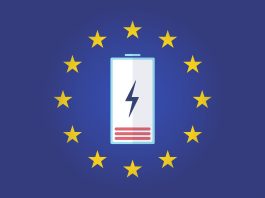Thore Sekkenes, European Battery Alliance Program Director at EIT InnoEnergy, highlights the importance of EIT InnoEnergy’s One-Stop-Shop for providing guidance to SMEs about efficient access to public funding.
In Europe’s energy transition, small and medium-sized enterprises (SMEs) are emerging as catalysts for innovation within the battery industry.
With their capacity for rapid adaptation, SMEs can drive significant advancements in battery technology.
However, despite their potential, accessing funding and navigating Europe’s complex financial landscape must be overcome.
Services like EIT InnoEnergy’s One-Stop-Shop to EU finance play a pivotal role in addressing these challenges. This service offers tailored guidance to simplify access to public funding across the battery value chain so that SMEs can reach their full potential in the energy sector.
To learn more about the potential of the One-Stop-Shop service, we spoke to Thore Sekkenes, European Battery Alliance Program Director at EIT InnoEnergy.
Can you elaborate on the important role of battery SMEs in Europe’s wider energy transition?
When it comes to implementing changes, smaller companies tend to be quicker compared to larger ones.
While larger companies possess greater resources and infrastructure, they often find it more challenging to pivot due to their established processes and systems. Conversely, SMEs, often associated with agility, exhibit a greater ability for adapting and innovating.
Large companies, however, are aware that they need to adapt to drive change.
They seek out SMEs, recognising their potential for innovation, and invest in supporting their evolution. This strategy allows larger enterprises to leverage the agility and fresh perspectives of smaller entities to drive broader organisational change.

What challenges do SMEs face regarding access to public funding?
First, establishing credibility is vital; it’s what inspires trust and prompts individuals to entrust their funds for investment purposes.
Public funding is very important in establishing credibility. Relying solely on personal funds may raise questions among potential investors regarding the breadth of financial support.
Ensuring sound financial arrangements not only facilitates current operations but also instils confidence in prospective investors.
Another aspect to bear in mind is proficiency in fundraising, which isn’t necessarily synonymous with technical expertise.
You might excel as a technician or scientist yet lack the know-how to navigate the intricacies of fundraising – knowing whom to approach, how to network effectively, or how to access public funds. These are distinct skill sets.
As implied by their size, small companies typically have limited resources. Hiring key personnel tends to focus on their core expertise rather than on financial matters, particularly in technology-driven companies.
Because of this, companies need to hire individuals with diverse skill sets, including HR professionals, process specialists, and finance experts.
It is important to have experts who understand the intricacies of financial navigation.
What motivated the development of the One-Stop-Shop?
The concept of a One-Stop-Shop is essential. The One-Stop-Shop aims to firstly streamline navigation through the complex public funding landscape, and secondly, to provide tailored guidance based on the applicant’s profile and stage of development.
Public funding in Europe is particularly complex.
The landscape is intricate, given the multitude of Member States, the EU’s overarching role, and the varying stages of development across regions. There are a plethora of tools available for different stages, both public and private, spanning from early-stage to development phases. This complexity underscores the need for a One-Stop-Shop aiming to assist SMEs in navigating this intricate terrain.
Secondly, it’s essential to acknowledge that not all companies are alike. What works for one may not necessarily be suitable for another due to factors such as geographical location, position within the value chain, or the stage of development.
The One-Stop-Shop directs individuals to relevant public funding programs which are the best fit for them and even offers training courses to enhance their efficacy in securing funding.
From the financing entity’s perspective, it’s crucial to avoid investing time and resources in applicants who may not be the right fit or who aren’t adequately prepared to receive funding.
A key function of the One-Stop-Shop is to assess the maturity level of companies seeking assistance. If an application indicates that the applicant lacks the readiness or capability to answer crucial questions, it’s a clear indication of their maturity level.
In such cases, the One-Stop-Shop ensures that the applicant is redirected appropriately, preventing them from consuming the time of entities with more pressing responsibilities. This scrutiny in the process ensures that immature companies receive guidance on prerequisites before engaging with potential financiers, while mature companies are directed towards suitable avenues for their financing needs, such as scaling up operations.
This approach aims to streamline the process and ensure that resources are allocated effectively.
The One-Stop-Shop accelerates the vetting process for private investors, signalling that certain credibility benchmarks have been achieved, thereby facilitating subsequent investment decisions.
Once a case has been evaluated, what services will they receive?
We offer training sessions, particularly for those interested in the Innovation Fund.
This is designed to help applicants navigate relevant aspects of the funding landscape, tailored to their needs. Our goal is to provide clear guidance on the most pertinent areas of interest.
For those companies with exceptional potential, we offer additional support through EIT InnoEnergy, providing a fast track for their development.
Although this isn’t the major aspect of the One-Stop-Shop, we closely monitor promising projects and may offer individualised assistance when necessary. This is at the top end of the scale.
How does the European Battery Alliance ensure that companies within the battery industry consider the entire value chain when developing their products?
An examination of the entire value chain is of great importance to the European Battery Alliance.
If this approach is not taken, a company could examine one segment without considering upstream or downstream aspects, becoming vulnerable. Someone opening a mine is just as welcome as someone in the battery recycling sphere.
Companies from different aspects of the value chain are welcome to the One-Stop-Shop as well. Focusing on the entire value chain is key to our success.
The launch of the EBA Raw Material Fund underscores the significance of upstream activities. While considerable attention is rightfully placed on manufacturers, it’s crucial to acknowledge that their operations are wholly reliant on the accessibility of raw materials necessary for anode and cathode production.
Upstream and, to some extent, downstream are the two weakest parts of the value chain.
No chain is stronger than its weakest link, so focusing on the entire value chain is important for the raw materials sector as a whole.
Through streamlined financing mechanisms for small and medium-sized enterprises across the whole value chain, the One-Stop-Shop will help the battery industry work towards a sustainable future.









